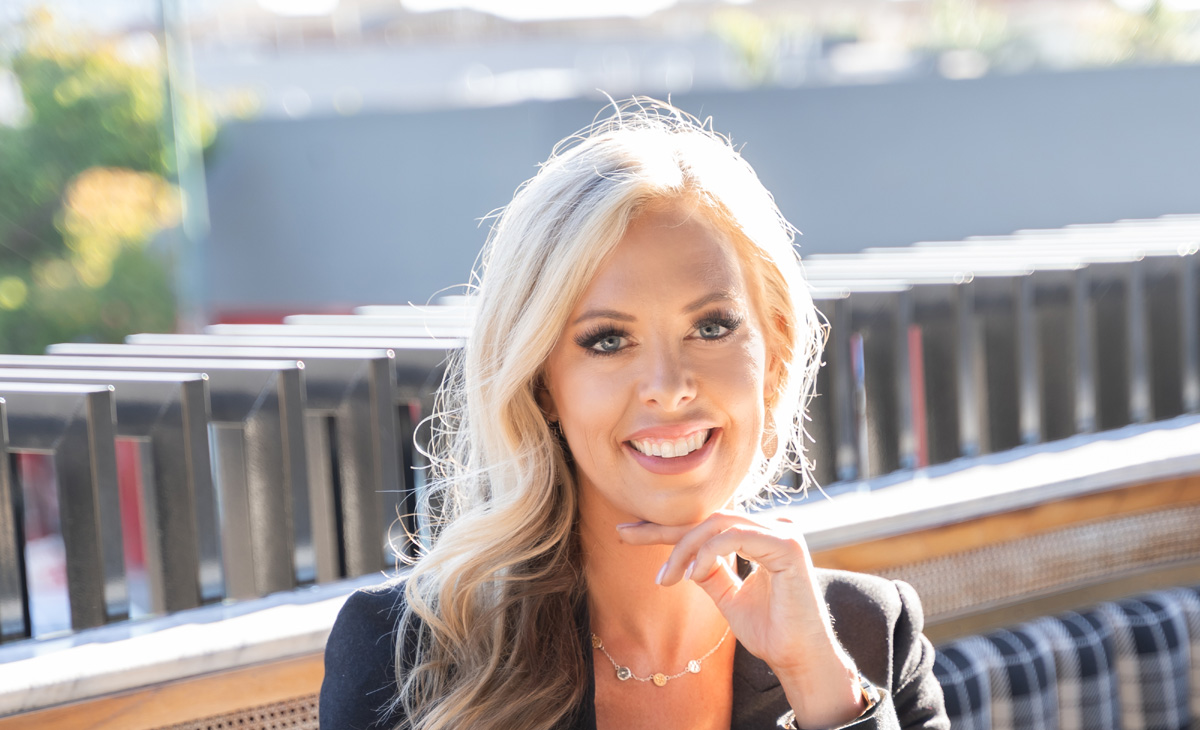Thought Leadership Studio Podcast Episodes:
How to Scale a Coaching or Consulting Practice - Interview with Jessica Yarbrough
Episode 42 - Combining mindset, self-belief, and the right strategy for your coaching or consulting practice

#branding, #coaching, #consulting, #contentmarketing, #interviews, #marketing, #marketing, #marketingstrategy, #motivation, #strategicthoughtleadership, #thoughtleadership, #thoughtleadershipexamples
Or Click here to listen or subscribe on appWhat this episode will do for you
- Learn from the expertise of Jessica Yarbrough as she shares insights on building a successful online coaching business.
- Gain valuable strategies and tips on how to overcome obstacles and achieve entrepreneurial success in the digital world.
- Discover the importance of mindset and self-belief in creating a thriving coaching business, and how to cultivate these qualities effectively.
- Explore Jessica Yarbrough's unique perspective on leveraging social media and digital marketing combined with direct outreach to attract and retain high-dollar clients.
Jessica Yarbrough.
Jessica Yarbrough has quickly developed a reputation of being one of the best business strategists for coaches and consultants who want to sell and scale ultra-high-end services. Her background is in international business and she has built multiple companies.
Jessica is a genius at showing entrepreneurs how to build an expert platform, rapidly raise their value, build credibility and attract high-paying clients. She loves teaching entrepreneurs how to grow their influence and make the income and impact they desire.
Some of Jessica's coordinates:
Curated Transcript of Interview with Jessica Yarbrough
The following partial transcript is lightly edited for clarity - the full interview is on audio. Click here to listen.
Chris McNeil: I'm Chris McNeil, host of Thought Leadership Studio, and I'm sitting here, from one end of the United States to the other - from Charleston to San Diego, with Jessica Yarborough, who's quickly developed a reputation of being one of the best business strategists for coaches and consultants who want to sell and scale ultra high end services.
Her background is in international business. She's built multiple companies, and she's a genius at showing entrepreneurs how to build an expert platform rapidly, raise their value, build credibility, and attract high paying clients. She loves teaching entrepreneurs how to grow their influence and make the income and impact the desire. Don't we all wat to do that? Welcome, Jessica.
 Jessica Yarbrough: Thanks so much for having me, Chris.
Jessica Yarbrough: Thanks so much for having me, Chris.
Chris McNeil: Well, it's great to be talking with you. I can sense your positive energy already.
For our listeners. can you give us the quick story of what inspired you? What was the pivotal moment that got you to decide to do what you're doing now with being kind of a "meta-coach", coaching coaches?
Jessica's Journey
Jessica Yarbrough: Yeah. So I'll give you the Cliff notes version. You know, my background was in business. I did build multiple companies, did some consulting in my early twenties, created a startup in San Diego. And I ultimately walked away from it and went on a four year eat, pray, love journey, where I traveled the world backpack, became a yoga teacher, said, Hey, I'm never gonna go back to the business world. And came back to the United States, ended up getting pregnant with my daughter at another awakening, because I didn't want to, obviously, struggle and (laugh) be teaching yoga.
It was wonderful, but, you know, it was a more of a passion versus paying the bills. And so I had two options. One, I could go back and get a job, however, I'd already been an entrepreneur and had that freedom. or two, I could roll up my sleeves and build my own business.
And so I built my company at zero ground, zero, you know, and financially struggling at the time while I was raising a daughter on my own. And I started doing, done for you marketing consulting services. I had a lot of success. Quickly. I had friends saying, please, can you teach us what you're doing? And that's when I transitioned.
You know, I do believe the, the adage, you know, give a man a fish, feed him for a day. teach a man to fish, feed him for a lifetime. So rather than me getting behind the, going behind the curtains and pulling all the, the levers I started to teach and empower, "How do you do this on your own?" And how do you assemble the team to help you get to where you wanna go? And that was kind of the journey to where I am today.
Chris McNeil: And you obviously help help coaches and consultants get the most bang for the buck ... get the most return on investment. And don't we all deserve to maximize the benefits we get from our hard work?
Getting Into Coaching or Consulting
How do you see from a thousand yards away mm-hmm. (affirmative), how do you see the dynamics of somebody getting into coaching or consulting and getting traction, and knowing they're gonna get the most for the work they're putting into it?
 Jessica Yarbrough: Well, that's a great question. I mean, when most people start, often they have no idea what they're doing, right? They're kind of just throwing spaghetti against the wall, seeing what will stick. And I have carved out a fairly niche market and that I'm not working with say like a Starbucks barista, who's like, "okay, Jessica, help me become a six or seven figure coach or consultant". I work with people who have demonstrated experience in their field. So, you know, they may not be entrepreneurs, they might be new to entrepreneurship, or maybe they're established and just stuck, but they've done this work, they have credibility.... because my program is around accelerating you as an expert.
Jessica Yarbrough: Well, that's a great question. I mean, when most people start, often they have no idea what they're doing, right? They're kind of just throwing spaghetti against the wall, seeing what will stick. And I have carved out a fairly niche market and that I'm not working with say like a Starbucks barista, who's like, "okay, Jessica, help me become a six or seven figure coach or consultant". I work with people who have demonstrated experience in their field. So, you know, they may not be entrepreneurs, they might be new to entrepreneurship, or maybe they're established and just stuck, but they've done this work, they have credibility.... because my program is around accelerating you as an expert.
So you still have to be an expert. I'm not gonna teach you to be an expert. You have to have a background and experience to what you're doing. And many of the people that come to me have worked in a corporate world. They've been directors, senior level directors, all the way up to VPs and C-Suite.
But when it comes to how do I take that and translate this into a coaching or consulting business that I can attach six figures to my time and turn around and sell to companies, that's where there's a disconnect. And that's where I come in.
Chris McNeil: Okay. So you work with people who already have the expertise ... they've got the experience, they know how to get results, but maybe not how to maximize it in that context now. And I think this could be advantageous to a lot of our listeners, from what I know about them.
Creating Content and Billable Time
 How do you see the relationship between creating media for content marketing, for awareness for PR creating media to sell and paid time as a consultant or coach?
How do you see the relationship between creating media for content marketing, for awareness for PR creating media to sell and paid time as a consultant or coach?
Jessica Yarbrough: I mean, they're both extremely important, right? So 90% of the coaches and consultants that come to me that are either transitioning out or maybe they're established, they've been doing it 10 years, but they're stuck at 300,000, half-million, 700,000 typically is the range that they come to me at. Where they're stuck is they have a fundamental communication issue. They are unable ... they get results for their clients, many of them have built a referral-based business, which is not scalable. You don't know when the next referral's coming in...
Chris McNeil: Sure.
Jessica Yarbrough: ... Most of them have a complete lack of awareness of what the market is willing to pay and are severely undercharging. And they, they might have tried marketing but gave up because they didn't what they were doing. Right? Like it didn't work. I posted a few times or whatever ... Most of them have a fundamental communication issue.
They do not understand how to effectively communicate their value in the marketplace, which comes down to your leads and sales and your ability to create expert authority. And so that is one of the areas that we work intensively with them on is how do you extrapolate your genius, like all that you can do, and how can you position that to raise your prices two x to 10 x such as our average for our clients. And how do you then position yourself as best in class so that you can command top dollar and have clients raise their hand to work with you?
Chris McNeil: So, best in class. Best in a niche. How do you help them define the niche to be best in? Because obviously if you go too broad, then you can't be everything to everybody. But if you go too nearer, there may not be a large enough customer base.
Jessica Yarbrough: Well, there has to be enough, large enough customer base. So that's one of the things you mentioned. Well, we definitely don't wanna go too wide because one of the most common traps that keeps coaches and consultant back is called the trap of the generalist Jack or Jill of all trades, master of none. it will keep you in the low six figures.
And so, in order to break out, we do need to specialize and narrow down on your market. And we can do that in a couple of different ways. I mean, one, sometimes process of elimination, like what do you not, who do you not like working with? Sometimes that's easier for people. We can knock out those industries. But typically, where do you have experience? Those, those are the industries we're gonna go after. It's harder to break into a new market. If your background is in healthcare technology, we're typically going to go through with those companies or adjacent types of industries as a niche.
Chris McNeil: Okay. So once you've identified a niche and you're like, "okay, this is, this is my focus", you know what you don't want. And how do you address that? Are you focused more on helping them do inbound marketing or outbound marketing, or a combination of the two? Or does it depend on the situation?
Jessica Yarbrough: Yeah, so typically what we do is we wanna go deep into understanding their genius - finding the most urgent pain that they can solve. Because when we're talking about selling the six figure program, right? 180,000, 150, whatever it may be, a hundred thousand. the pain needs to be urgent.
Finding Urgent Pain
So we need to make sure that the market that they're going after has an urgent pain, right? We wanna make sure that we're going after people that value time more than money, meaning they have very little time on their hands and they have a lot of money to solve, to throw at solving it, right? Those are the people that are going to buy ultra high end. And most coaches ...
Chris McNeil: How do you know that? How do you discover that?
 Jessica Yarbrough: Well, most coaches and consultants that are struggling, a lot of them are going after people that value money more than time. They don't have a lot of money. They're broke, they're struggling, they can barely scrape together a few hundred dollars to pay you, or they need a payment plan on a $5,000 package, whatever it may be.
Jessica Yarbrough: Well, most coaches and consultants that are struggling, a lot of them are going after people that value money more than time. They don't have a lot of money. They're broke, they're struggling, they can barely scrape together a few hundred dollars to pay you, or they need a payment plan on a $5,000 package, whatever it may be.
The problem with those is they don't have a lot of money. They have a lot of time. If you're gonna sell those, there's nothing wrong with selling to that market. Those are the people that are gonna wanna take courses DIY. If we're talking about selling six-figure programs and you're trying to market decision makers, CEOs, you know Chief Operating Officers, Chief Revenue Officers depending on what your market is, those are the people that have the most demand on their time and also can pull the purse strings in terms of influencing the amount of money they can can go invest in your services.
So we want to go after those people and find what is the urgent pain. It cannot be a small cut, and you have a band-aid solution. They need to have a gash that is bleeding, and you are the tourniquet. So what we help them do is identify who is this person, understand deeply what those pains are and how they are stuck in this valley of pain, and what is that mountain of, of potential possibility they wanna get to.
We then codify your methodology, your step-by-step system for getting them to that promised land of the mountain. Sure. Your blueprint is the guide, the map, and you become the Sherpa.
Chris McNeil: So I'm getting a lot about what I would call psychographics.
Jessica Yarbrough: Yes. Alot.
Chris McNeil: And more so than the demographics, but the demographics seem simple. If, you know, you're aiming at the C-suite.
Jessica Yarbrough: C-suite usually is what we go for. And I mean, we can filter LinkedIn, you know, I'm a big proponent of LinkedIn. You can filter data points like that - it is very easy. the psychographics are where most people miss the mark.
Chris McNeil: Gotcha. So the demographics, knowing who to go after is not so hard in terms of "do they have the ability .Do they have the need?"
But then when you get into the need, then you've got the psychographic and I'm seeing it sounds like you've got a map, a system.
So can you tell us the stages of engagement of how would you work with a client on creating that map, that psychographic map of the ideal client that you would work with and those pain points? How would you define those?
Jessica Yarbrough: Well, it's a combination. One, I work with my clients deep dive into this process. And I've developed so many ... I call it your pathway. And I've named and branded so many programs at this point. You know, I have deep insight into it. We also take the client's deep insight and then we back it up with research. So it's the trifecta of my knowledge, their knowledge and the research that come together to create a really amazing and powerful profile for this client.
And then I also have a copywriter who's on my team who will help massage their messaging even more, take it that extra 10% so that their messaging becomes highly relevant. It's sticky versus a lot of what you see out there, especially on LinkedIn, because that is the platform that we focus on. So many of the content out there is boring. It's generic, it's too academic. It's, you know, like leadership quotes for example, that don't really tell anything about who you are, the problems that you solve. So, the messaging is core to everything that we do. And any messaging around, whether it's developing the solution or pitching, presenting that solution, we, we teach and we help our clients with.
Chris McNeil: Yes. Obviously LinkedIn is a great platform for this kind of work. Yes. And you may have answered this already, so forgive me if I'm being redundant, but when using LinkedIn as a platform - or other other media - is the focus more on creating the content that will attract the inquiries or is it more on direct outreach to potential clients?
Jessica Yarbrough: Both. Because you don't want to do direct outreach without having something to say and without any expert authority. There's nothing for them to consume. And if your marketing is done right, that's the heavy lifting for your sales. That's how people come pre-framed to buy. I always say 80% of sales happen before call ever takes place.
 So you absolutely need to be building what I call your body of work online. Any expert out there - and you can rattle off names of the top gurus - they put out a ton of information to educate their audience on who they are. At the same time, you don't want to just educate people and hope that they magically find you. You need to be actively building your audience of decision makers. So it's that combination of doing those things simultaneously that is essential to creating expert authority.
So you absolutely need to be building what I call your body of work online. Any expert out there - and you can rattle off names of the top gurus - they put out a ton of information to educate their audience on who they are. At the same time, you don't want to just educate people and hope that they magically find you. You need to be actively building your audience of decision makers. So it's that combination of doing those things simultaneously that is essential to creating expert authority.
Chris McNeil: Interesting. So you need the body of work, you need your manifesto out there, so to speak, in whatever form. but you're not going to depend on that. You're not going to depend on just the organic ... the organic needs that come from people consuming that. Although I assume if you do that well, there will be some of that, but you're also ...
Jessica Yarbrough: There is outreach. You do wanna do the outreach and then we want to focus on organic and what I call OPT, other people's traffic as well. You can tap into getting booked on podcasts, getting your name out there, you know, speaking. There's lots of things that you can do to pull that traffic in. And then I typically don't recommend ads until you're at a later stage in business. You need to have a fully functioning marketing and sales system built out before you engage with ads in order to see a return.
Chris McNeil: I would agree with that. Absolutely. Get you organic game down really well first. And of course we're, we seem to be talking about the same kind of thing we deal with with the podcast specifically, is Strategic Thought Leadership. Because if you're going to be the go-to in a niche, that means you're practicing Strategic Thought Leadership. You're leading people to embrace your point of view.
Jessica Yarbrough: Absolutely.
Chris McNeil: And how do you see your own niche? How would you describe your, your own thought leadership model, for lack of a better term, and what you do for people?
Jessica's Thought Leadership
Jessica Yarbrough: Yeah. Well, I primarily work with B2B coaches and consultants. So strategist strategist, leadership, executive change management, organizational design, those kinds of folks and B2C that are targeting more higher net worth professionals. So career coaches, and that's really the market that I play in. I've certainly helped life coaches and other types, but I don't work with those so much anymore.
We are really targeted on professional services. And then as far as what I help them do, it's really understand their genius, how to package present it and sell it command top dollar for their time. build something that is truly scalable so that they're able to hit high six and even multiple seven figures and do that on their own terms.
Chris McNeil: I'm getting a couple things from this and one is you help people revere their own genius.
Jessica Yarbrough: Yes.
Chris McNeil: ... And to exalt at a higher level how they value themselves and their own work.
Jessica Yarbrough: Very much so.
Chris McNeil: ... And to help psychologically break through any imaginary ceilings over their income.
Do you typically find yourself dealing with people who are at a bottleneck and they're looking for an opening to that bottleneck because they've grown and now they're stuck, they're stuck, to do something different. They might be thinking "I could need someone on the outside to help me get a new perspective."
Jessica Yarbrough:Very much so. A lot of people come to me stuck. And like I said, it could be a 300, it could be a 700, it could be a 200, whatever it may be. And they cannot no longer do more to make more. We have to redesign their business model and their pricing and their marketing, their strategy, everything in order to elevate them, which ...
Chris McNeil: ... is the other side, you know, the side that you have the psychology of revering yourself at a higher level so that you feel you are worth it and you exude that and you communicate that to correct perspective clients. But then you need the strategy and the execution of that strategy.
Jessica Yarbrough: You need both. You hit the nail on the head. We have to do both. And we do work on clients with both. And look, the same things come up for people. Even for my clients that held C-suite positions at major organizations. Like they still have the confidence issue, you know, that we have to work on. And, you know, when we codify their methodology, when we help them give them messaging that is relevant when they have a product that they can get behind, their confidence level skyrockets.
Chris McNeil: Interesting. So helping them have a product they can get behind. Can you tell us a story? Let's kind of bring this out the abstract. This is all fascinating to me, by the way. I love this stuff. but let's bring out the abstract with a story sharing what of course you're comfortable sharing over a podcast.
Jessica Yarbrough: Sure. Well, I have, I have one client Michelle, I have an in-depth case study, ...
***************************************
The transcript is lightly edited for clarity and is a partial transcript- the full interview is on audio. Click here to listen.
***************************************
Free Stuff and Offers Mentioned in Podcast
***************************************
***************************************

Are you tired of your company's online presence falling short of your expectations? Look no further than 5th Level Web - the web development and internet marketing company that makes the internet turn-key for companies with $5-$100M in annual sales.
5th Level Web is for market leaders. We make sure your web presence reinforces and supports your leadership.
At 5th Level Web, we have high-level tech experts on hand to ensure quick response times and top-notch service. Our team will work with you to create a compelling message and web presence that sets you apart from the competition, establishing your company as a market leader with the THAUT process of strategic thought leadership.
Click Here to schedule your free offer as a listener/reader of Thought Leadership Studio: a Free Web Analysis and Consultation.
***************************************